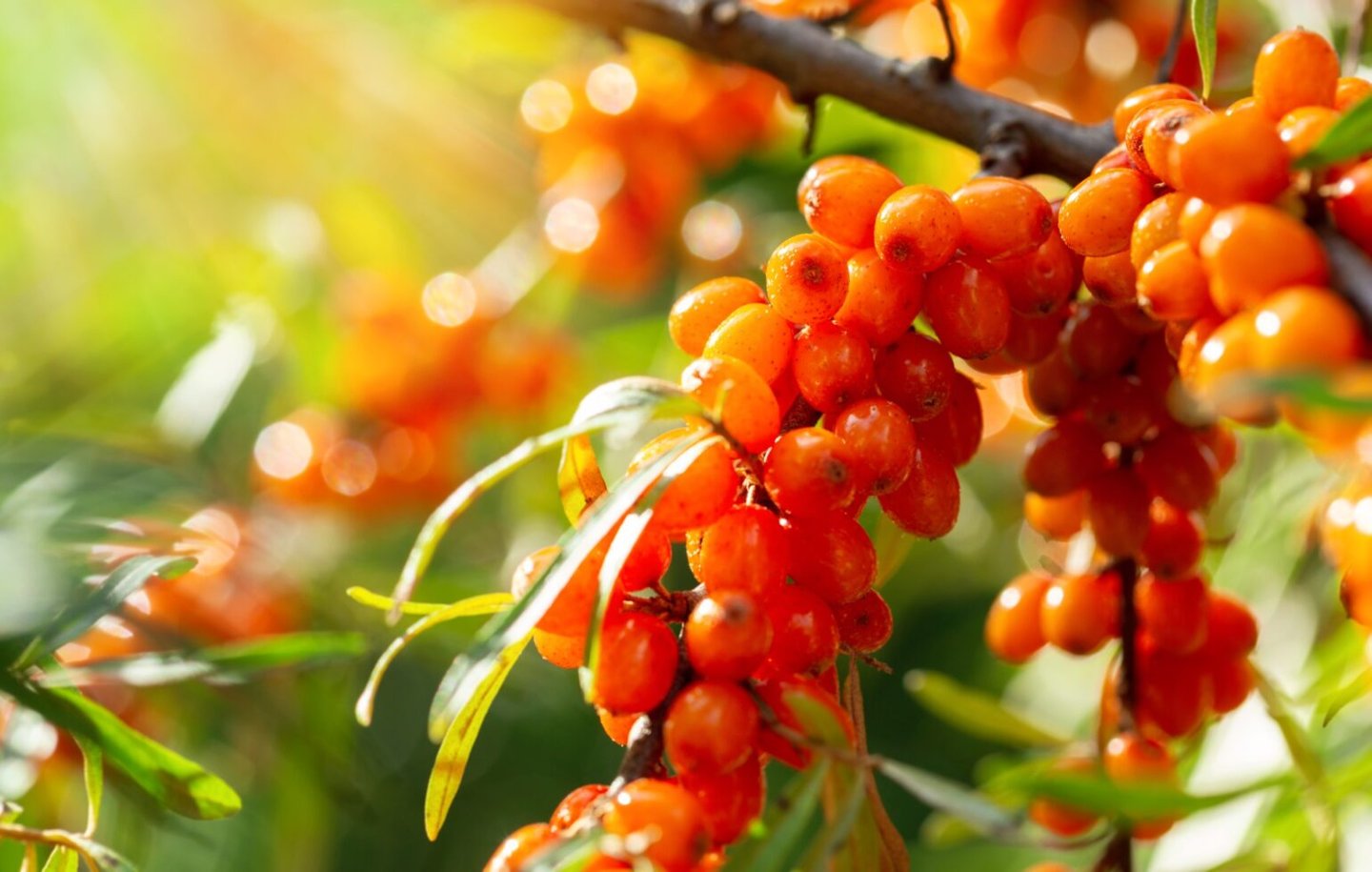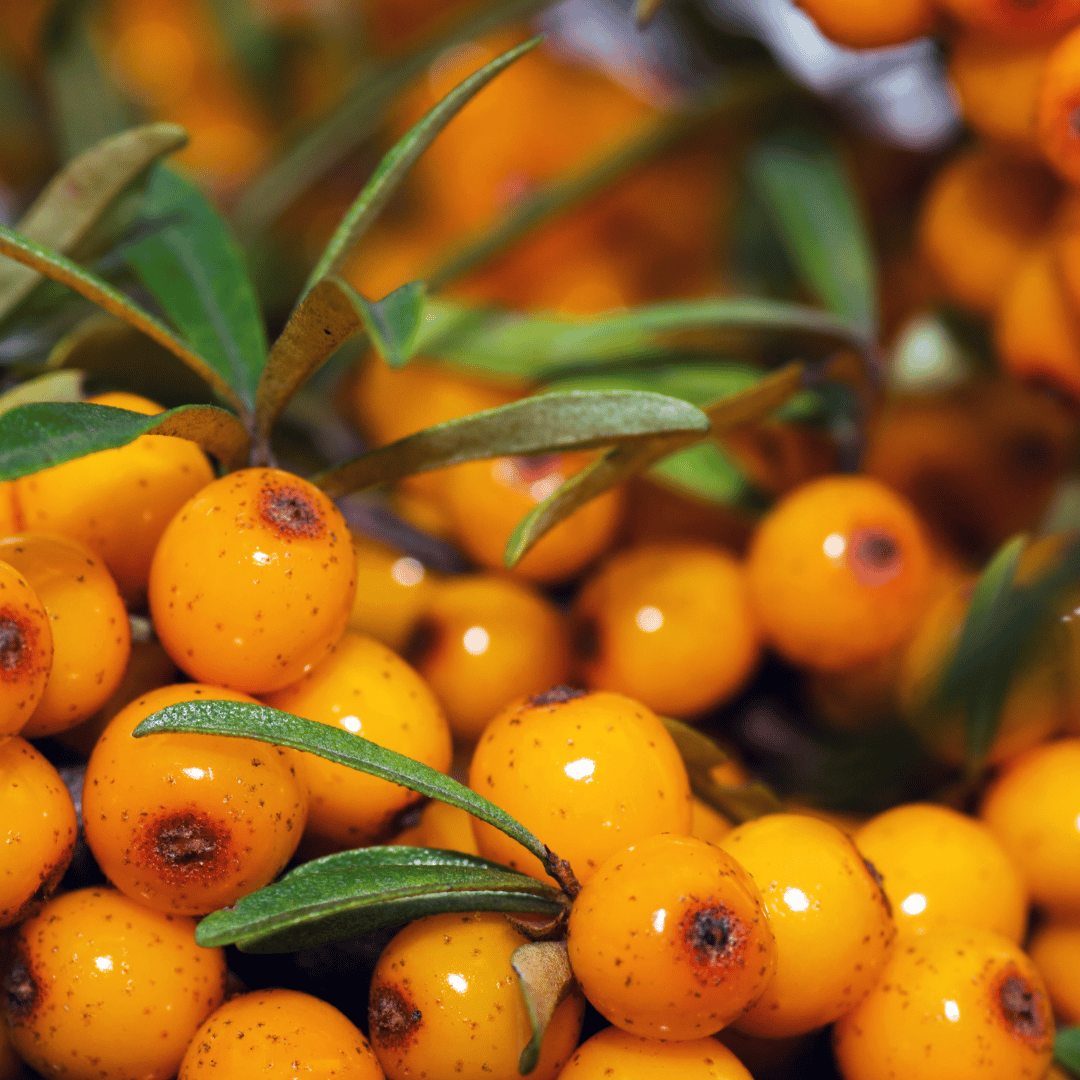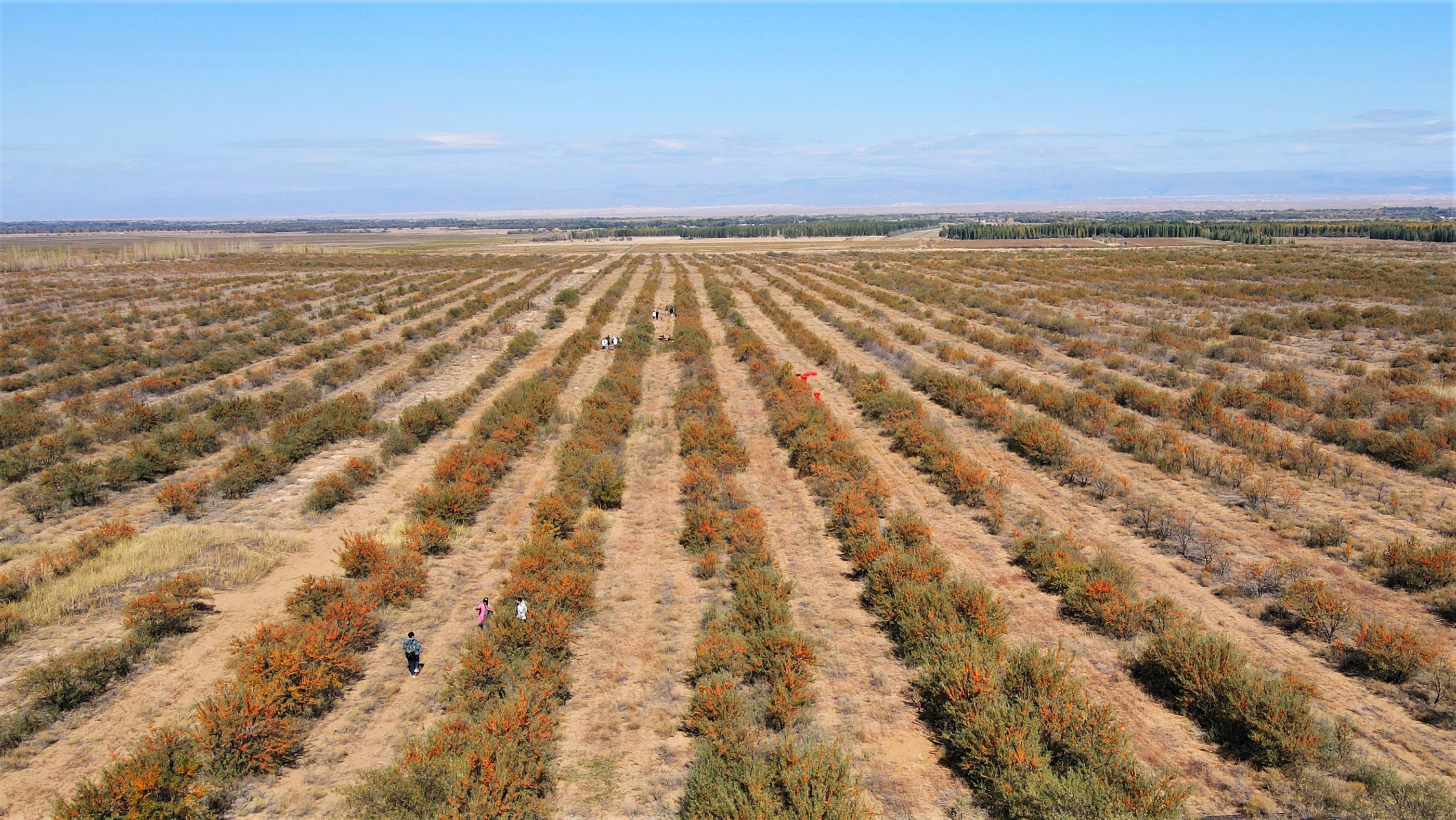

SEA BUCKTHORN
Discover More:
Found in: PhytoPowder (Lemon)
Native to harsh climates in Europe, Asia, and India, sea buckthorn is more than just a hardy plant. Known as the “holy fruit” in Tibet and sometimes referred to as the Himalayan berry, this resilient berry has been used in centuries-old medicinal practices, including Ayurveda, where it's valued for its rejuvenating properties. It has a history of treating various ailments, including coughs, digestive issues, skin conditions, and wounds. Interestingly, in Traditional Chinese Medicine, sea buckthorn is classified as a warm herb that helps clear congestion and soothe coughs, showcasing its versatile benefits.
Additionally, sea buckthorn’s bioactive compounds bolster the immune system, enhancing its ability to fend off infections and promote skin vitality. This dual action in protecting skin health and boosting immune function underscores the berry's versatility and resilience. Incorporating sea buckthorn into your regimen can therefore provide comprehensive support for your well-being, making it a valuable addition to your wellness routine.
Packed with antioxidants, sea buckthorn combats harmful free radicals that contribute to oxidative stress and, surprisingly, supports brain health too! Research highlights that the total flavonoids in sea buckthorn effectively neutralize radicals like DPPH, hydroxyl, and superoxide anions, helping protect brain cells and support cognitive function. In another study, sea buckthorn flavonoids were found to alleviate cognitive impairments induced by a high-fat, high-fructose diet, demonstrating their potential to support brain health and preventing cognitive decline.
This berry's ability to support brain health complements its other benefits, making it a versatile ingredient in both diet and skincare. Sea buckthorn’s neuroprotective properties further solidify its role as a valuable addition to your wellness routine, promoting not just a healthy complexion but also cognitive vitality.
Fun Fact: Sea buckthorn berries are difficult to harvest due to their thorny branches, which can injure hands. The name "buckthorn" reflects the plant's thorny nature, historically linked to animals like deer that fed on it. Interestingly, despite its name, sea buckthorn isn’t a fruit of the sea; it thrives in harsh, dry conditions and can grow in environments most plants cannot survive, making it one of the most diversely geographically distributed flora. You can often find it alongside other exotic juicy fruits from the mountains.




